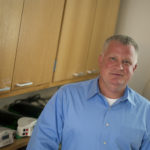About Jonathan Tilly
For over two decades, my laboratory has sought to promote a deeper understanding of the genetic and epigenetic drivers of cell lineage specification, differentiation and death, and to then utilize the information gained from these studies for development of innovative new technologies to improve human health within and across generations. Currently, we have major research efforts directed at defining the role of biomechanics in germline stem cell differentiation, uncovering the developmental switches that govern oocyte formation in fetal versus postnatal life, mapping the mechanisms underlying mitochondrial dynamics during preimplantation embryogenesis and transgenerational mitochondrial inheritance, testing the feasibility of stem cell-based tissue engineering to construct ‘artificial’ organs for regenerative medicine in aging and disease, and mapping the molecular evolution of cell fate trajectory. My research has been continuously funded by the National Institutes of Health since 1994, with much of our work published extensively in top-tier journals including Nature, Cell, Nature Genetics, Nature Medicine, and Proceedings of the National Academy of Sciences USA. I am the inventor on 10 issued patents, and have more than 20 other patent applications currently under examination. In 2011, I co-founded OvaScience, Inc., a Massachusetts-based biotech company that focuses on the discovery, development, and commercialization of new treatments for infertility. In 2013, I was named one of the top 12 innovators in science and biotechnology in Massachusetts by the Boston Globe, as well as Champion in Healthcare by the Boston Business Journal. Notably, our research efforts produced a new technology that led to the first baby born with an assist from stem cells—an achievement featured in the May 2015 issue of Time magazine.
Tilly’s lab seeks to promote a deeper understanding of the genetic and epigenetic drivers of cell lineage specification, differentiation and death, and to then utilize the information gained from these studies for development of innovative new technologies to improve human health within and across generations.
Publications:
-
Genetic Fate Mapping Studies of Stem Cells: Scientific Reports 2017; 7: 10011.Read
-
Clinical Application of Our Research: Seminars in Reproductive Medicine 2015; 33: 410–421.Read
-
Stem Cell Technology Protocol Development: Nature Protocols 2013; 8: 966–988.Read
-
Isolation of Human Oocyte Stem Cells: Nature Medicine 2012; 18: 413–421.Read
-
Prevention of Genetic Defects in Eggs Due to Aging: Proceedings of the National Academy of Sciences USA 2011; 108: 12319–12324.Read
-
Studies of Programmed Cell Death: Nature Reviews Molecular Cell Biology 2001; 2: 838–848.Read
-
Google ScholarRead





